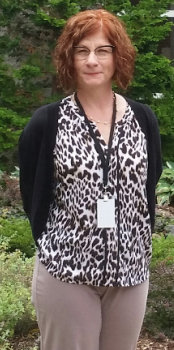Hillary Baker and Ellen Zwarensteyn have coached students in becoming so well-versed in government and civics that they take home national awards.
Baker has led outstanding We the People: The Citizen and the Constitution teams, made up of high school students who rattle off informed opinions about different facets of the U.S. Constitution in front of lawyers, judges and professors. Zwarensteyn has coached award-winning high school debaters who argue different sides of complex policy.
But despite their track records in engaging students in civics, politics and government, both educators say there is much work to be done. As the U.S. presidential campaign creeps closer and closer toward Election Day, evidence mounts that good civics education is more important than ever.
Related Article: Tuned In, Turned Off and Taking Action
A dozen high school students were talking about the first presidential debate. They weren’t too impressed with Hillary Clinton, but even less so with Donald Trump. “A lot of what he said was just lies,” said Ashley Martinez, who tracked Trump’s comments on a fact-check site…
| Ardent Advocates for Civics
Hillary Baker and Ellen Zwarensteyn work to promote civics education in many ways, including:
|
Baker and Zwarensteyn are crafting civics curriculum and training teachers nationally, as well as working to get debate and We the People teams in more schools.
“It’s been a real interesting year in how might we craft how we talk about the election and really getting kids to explore issues,” Baker said. “How do you go beyond the candidates and really unearth and look at issues, and be able to talk about the election in a way that promotes deep understanding?”
Baker and Zwarensteyn’s work spans more than two decades at East Kentwood High School. Baker taught civics, Advanced Placement government, and coached We the People for over 15 years. She is now Forest Hills Central High School’s assistant principal. Zwarensteyn coached debate for 15 years and has served as a teacher and coach since 2006. She is on leave to work on other projects focused on civics teaching.
How Have We Gotten Here?
Because of their work, the pair have a sense of the current teaching climate. Many teachers don’t feel up to the task of even including the election in classroom discussion, they say.
“We’ve had civics teachers say they are not going to talk about it at all,” Zwarensteyn said.
But skipping lessons on polemic issues fuels the divide even further, she said.
“That’s the $20,000 question,” Baker said. “Many teachers are afraid to talk about politics in the classroom because they are afraid of backlash from parents or the administration.”
But students quickly pick up on tone and what is considered OK to say. Hateful, insulting talk and rhetoric can be contagious. Knowing how to appropriately conduct political discourse is a vanishing skill set, Zwarensteyn said.
“It’s almost as if someone might have given other people permission to speak that way,” she said. “Honestly, many students are afraid. What we have seen is that they don’t have a fundamental understanding of themselves yet enough to filter what they are hearing in the news.”
Added Baker: “(It’s) that whole idea of civil discourse and how do we appropriately model it in the classroom? How do we engage in ideas and issues, especially when the adults in the national spotlight don’t necessarily do that very well themselves?”

Adults Create the Climate
While students are influenced by candidates, more than anything they mimic other adults, Zwarensteyn said.
“If people at home aren’t filtering or watching multiple news sources or aren’t getting their news from multiple different perspectives, then there’s very little chance for that kid to see other divergent points of view.”
That’s perhaps one reason the country is so polarized, she added: “We only seek out information that confirms an existing bias, and students don’t see that as a particular problem yet. They see news as news, not a perspective.”
Baker and Zwarensteyn are encouraging teachers to think deeper and consider these questions: How do we teach ethical listening to one another? How do we teach what privilege looks like or taking multiple perspectives on an issue? How do we honor different opinions and still have a baseline of civility?
The goal of their far-ranging work is to give students a broader view and deeper knowledge of things that impact their lives.
“These programs are good for all kids,” Baker said. “It’s the kind of learning students are doing that really engages them in current issues and what’s going on around them in their communities, in the state and the nation and even around the world.”









